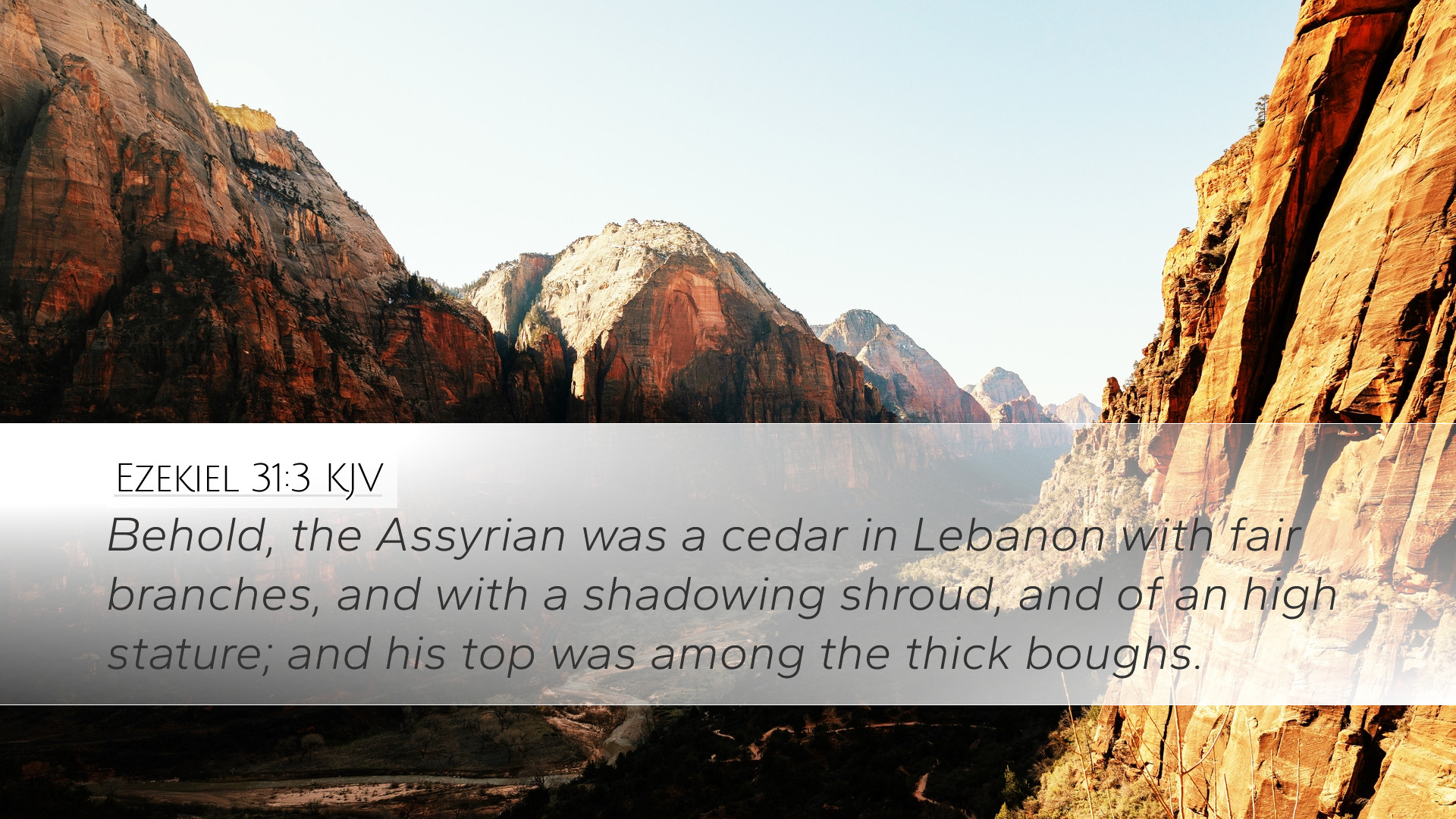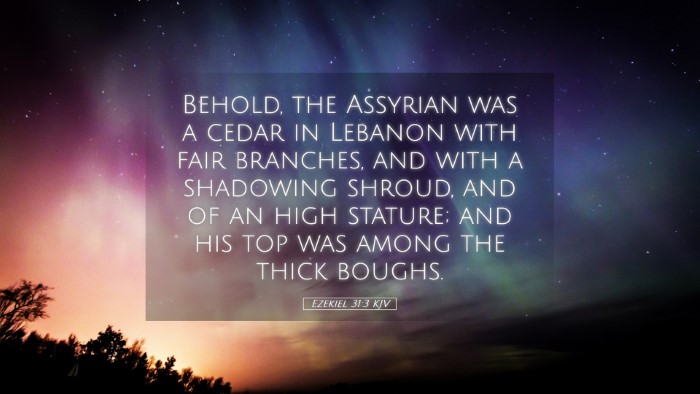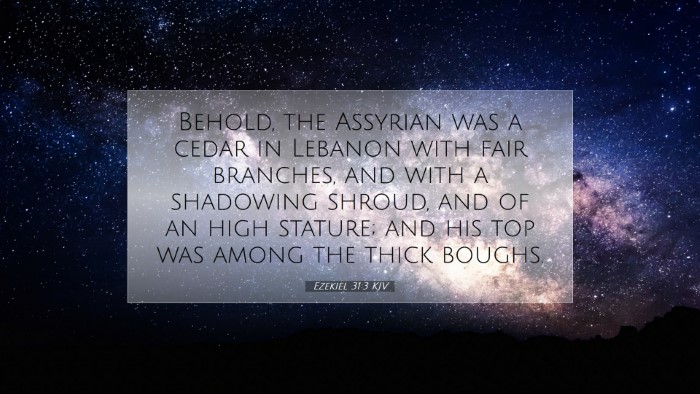Ezekiel 31:3 Commentary
Verse Text: “Behold, the Assyrian was a cedar in Lebanon with fair branches and with a shadowing shroud and of a high stature; and his top was among the thick boughs.”
Overview
Ezekiel 31:3 serves as a vivid illustration, where the Assyrian empire is depicted as a majestic cedar tree, symbolizing its grandeur, strength, and influence. The prophet uses this metaphor to convey deeper theological and sociopolitical truths regarding pride, downfall, and the sovereignty of God in dealing with nations.
Commentary Insights
Matthew Henry's Commentary
Matthew Henry highlights the grandeur of the Assyrian empire, comparing it to a “cedar of Lebanon,” esteemed for its size and quality. The cedar here represents not only physical strength but also spiritual significance; it stood tall among other trees, akin to how Assyria dominated its contemporaries. Henry underlines the point that while Assyria boasted an impressive stature, it ultimately becomes a testament to the transience of human pride.
Albert Barnes' Notes
Albert Barnes elaborates on the implications of this imagery, indicating that the Assyrian’s prominence among “thick boughs” symbolizes the multitude of nations that relied upon it for protection and influence. Barnes points out that this dependency is indicative of Assyria's role in the geopolitical landscape. Nonetheless, he warns that such power and prestige do not secure a nation against divine judgment. The towering tree will inevitably face the axe of God’s justice.
Adam Clarke's Commentary
Adam Clarke brings attention to the nature of the cedar, emphasizing its qualities of durability and resilience. He argues that the choice of this metaphor is intentional to communicate the perceived invincibility of the Assyrian empire in the minds of contemporaries. However, Clarke underscores the contrasting reality of God’s sovereignty that ultimately leads to the downfall of those who are arrogant. This tension between human might and divine authority serves as a central theme in Ezekiel's writings.
Theological Implications
This verse gives rise to significant theological reflections regarding the nature of God's sovereignty, human pride, and the ultimate futility of oppositional power structures against divine will. The metaphor of the cedar may serve as a foreshadowing of God’s judgment, illustrating not only the might of Assyria but also its susceptibility to God's decree.
Human Pride and Divine Sovereignty
As both Henry and Clarke articulate, the height and beauty of the cedar symbolize the pride of nations that elevate themselves above others. In a spiritual context, this conveys a universal truth that any entity—be it a nation or an individual—that opposes or elevates itself contrary to divine order places itself in jeopardy of divine disfavor. This folly resonates deeply with the biblical narrative, reminding readers that all earthly glory is fleeting compared to the eternal dominion of God.
Lessons for Pastoral Ministry
This rich metaphor reminds pastors of the necessity of humility before God. It serves as a warning to congregations about the dangers of pride, encouraging them to recognize the temporary nature of worldly power. As they engage their communities, pastors can use this verse as a basis for discussions on the importance of dependence on God as the ultimate source of strength and security.
Historical Context
An understanding of the historical backdrop is also crucial. The Assyrian Empire was known for its brutality and extensive conquests, effectively dominating many territories. Ezekiel's portrayal of Assyria as a “cedar” serves to contrast the perceived security and peace it provided to its vassal nations with the impending judgment that would come upon it. The Israelites, in exile, would particularly resonate with this imagery, finding both hope and a cautionary tale therein.
Conclusion
The imagery presented in Ezekiel 31:3 transcends just the immediate historical interpretation and opens avenues for deeper reflection on the nature of power, the fleetingness of human achievement, and the eternal nature of God's kingdom. This profound description draws on natural imagery to remind us of God's ultimate authority and serves to rebuke the arrogance of nations. As students and scholars delve into this passage, they are encouraged to embrace the lessons of humility, the recognition of divine sovereignty, and the ever-important call to place trust not in earthly matters, but in God alone.


